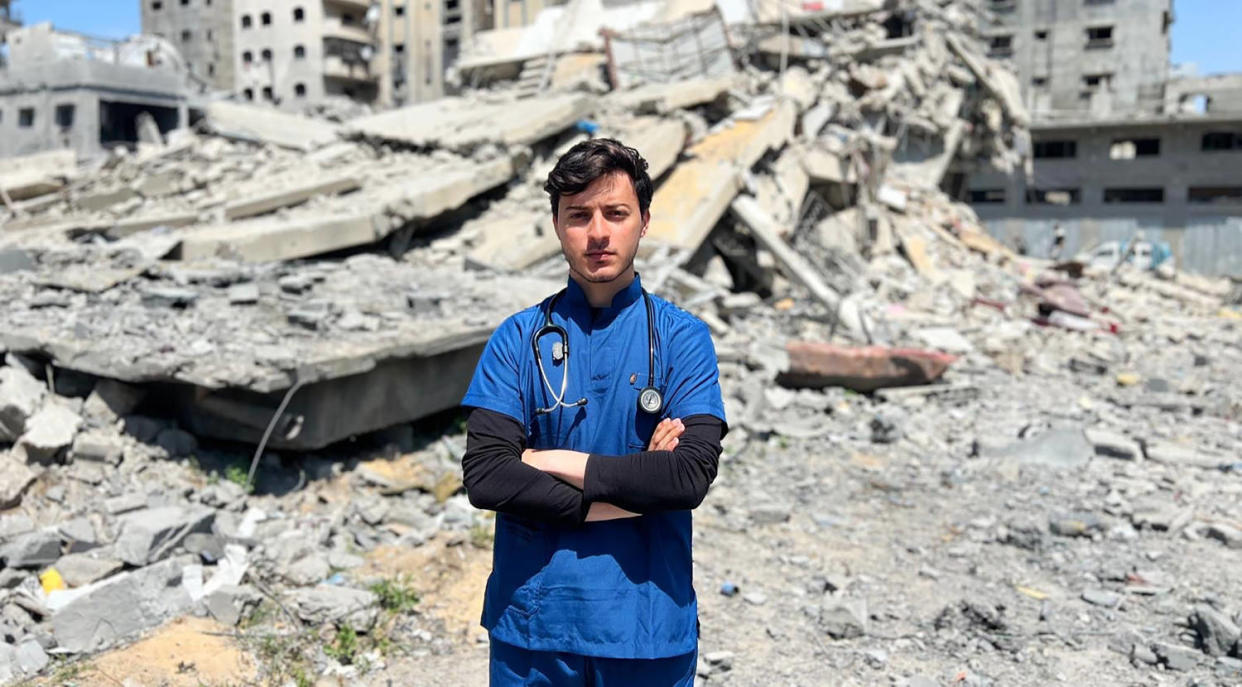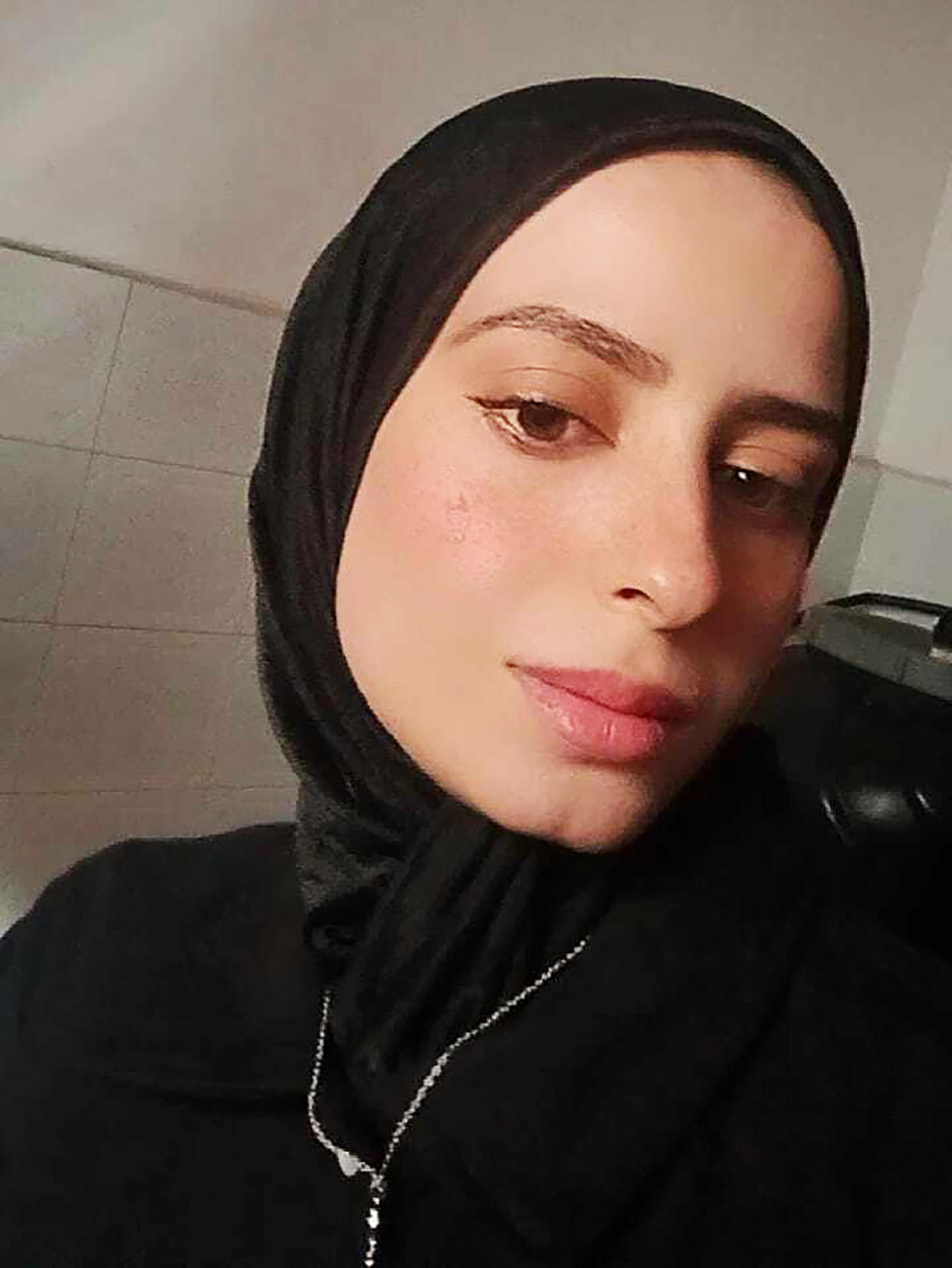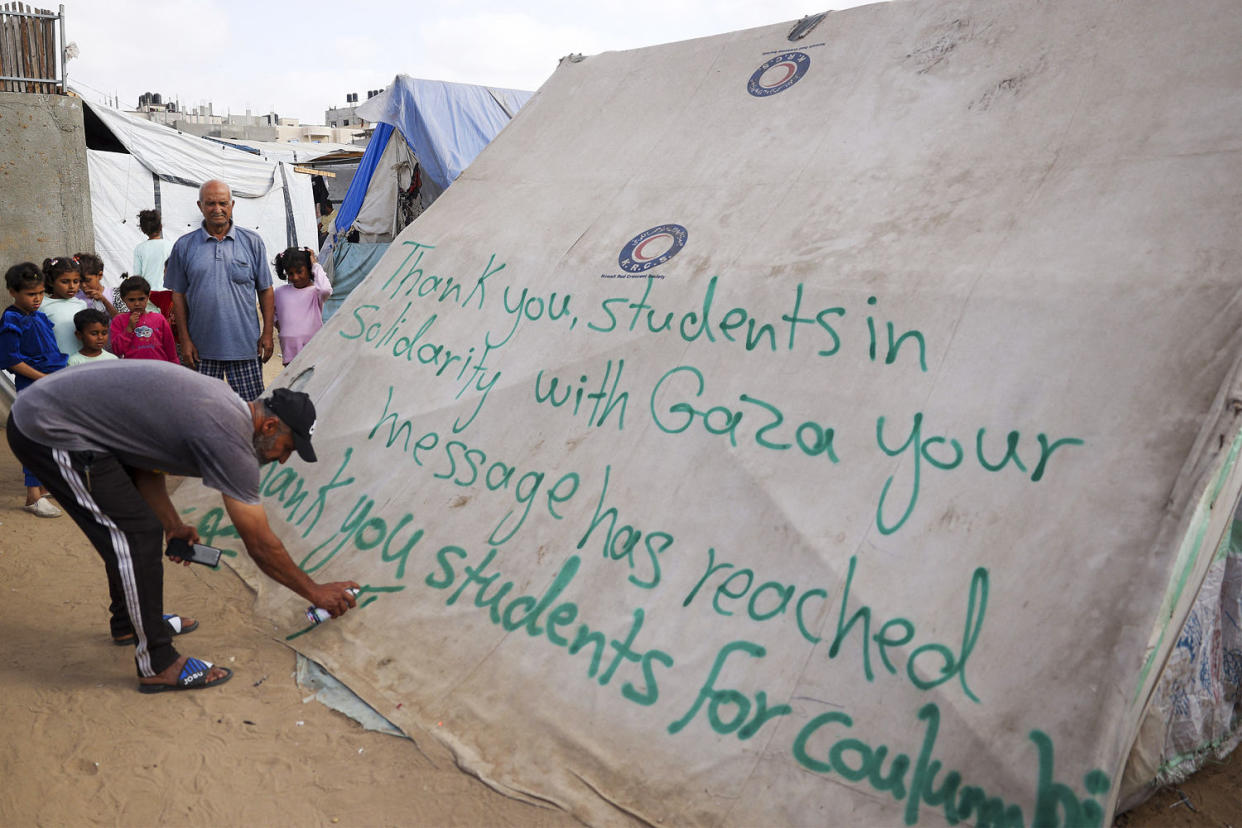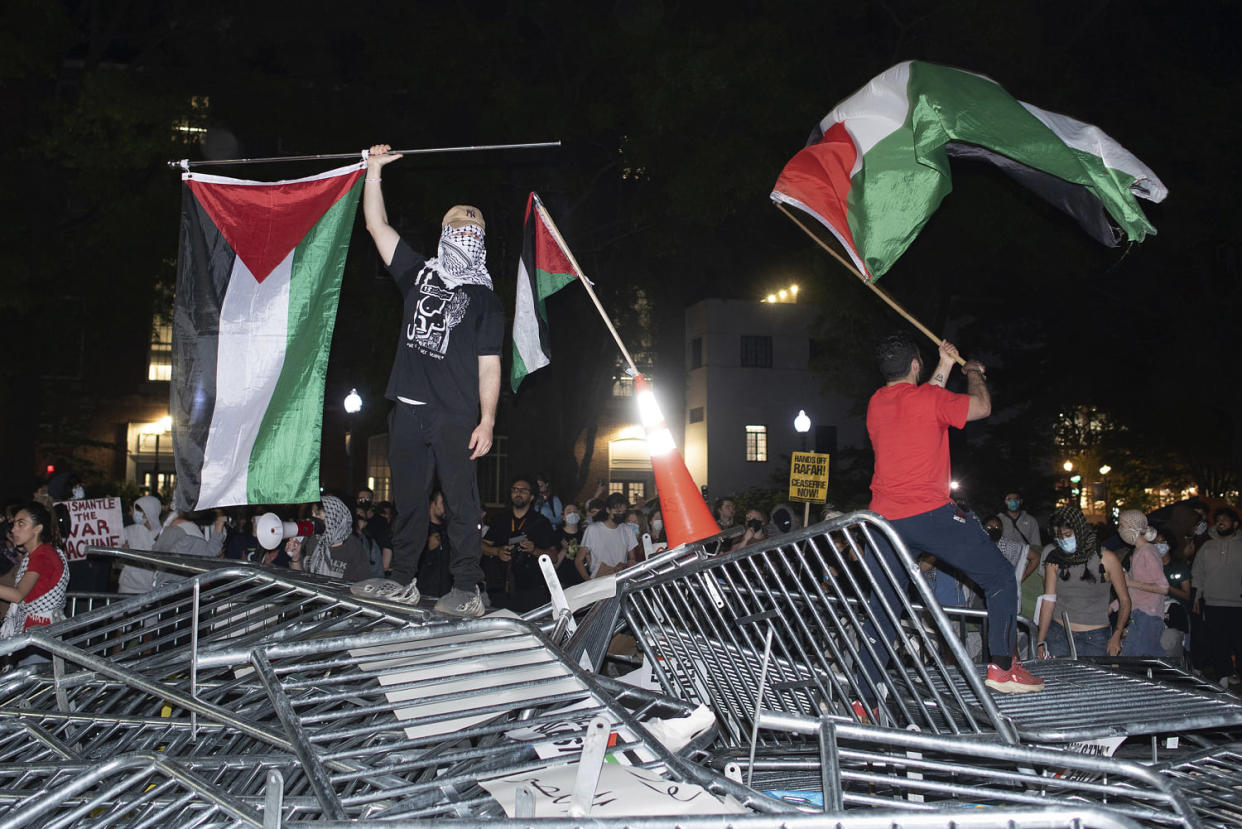'You are our hope': Gaza students find strength in U.S. campus protests
Protests over Israel's assault on Gaza have rocked college campuses in the U.S. and drawn condemnation from Israeli leaders, but students in the Palestinian enclave say they are watching the demonstrations closely — and gaining renewed strength from their peers in America.
"I feel proud that there is a group of students who feel what we feel now — and are helping and supporting us," said Reem Musa Suleiman Abu Shinar, who studied law before Oct. 7. She was speaking to an NBC News crew in the city of Rafah in southern Gaza, where she and her family are sheltering along with more than a million others ahead of an expected Israeli ground offensive.
Abu Shinar, 23, was not alone in praising U.S. college students, with university students and children in Gaza gathering over the weekend to send a message of thanks to the demonstrators, with words of gratitude written across tents in Rafah.
News of the encampments at U.S. colleges also reached Gaza's north, with Ezz Lulu, a 22-year-old medical student, urging students to "keep fighting for what's right."
"You are making a difference," he said.

The demonstrations, which escalated Tuesday, have swept across U.S. colleges amid mounting global criticism of Israel's actions in Gaza, where health officials say more than 34,000 people have been killed in more than six months of war.
But some of the protest action has also drawn accusations of antisemitism, which Jewish groups say has soared in the wake of the Hamas-led attacks on Oct. 7, in which some 1,200 people were killed and around 250 others taken hostage. Student protesters have rejected this accusation, with some saying claims of antisemitism are being weaponized against them in a bid to dismiss their criticisms of Israel’s actions in Gaza.
While the demonstrations stoke controversy in the U.S., they have struck a chord with many in Gaza.
Just over six months ago, Abu Shinar, who is from the Jabalia refugee camp in northern Gaza, was studying human rights law at Israa University in Gaza, determined to become a force of positive change for her community.

Her dreams were brought to a screeching halt after Israel launched its assault on Gaza — and in January, she saw them come crashing down after her school was razed to the ground by the Israeli military.
Abu Shinar said it was powerful to see thousands of U.S. students set up encampments calling for an end to the war in Gaza and for their schools to divest from Israel and from companies that could be profiting from the war.
But she said she also fears for the students' academic futures.
“My educational career stopped because of the war, and I do not want any student to be suspended from education,” she said.
The protests in the U.S. started at Columbia University in New York on April 17 with an encampment and student calls to end Israel’s assault on Gaza and for the college to divest from companies benefiting from the war.
Since then, encampments have cropped up on campuses of at least 20 colleges from coast to coast, as well as at the University of Alberta in Edmonton, Canada, and Sciences Po in Paris.

Protesters at Columbia University stormed and occupied Hamilton Hall overnight, flying a Palestinian flag from the building's windows and renaming it "Hind Hall" after Hind Rajab, a six-year-old who was killed in Israel's offensive in Gaza after making a harrowing plea for help in calls with first responders.
The elite university had started suspending students who ignored an order to leave their encampment by the university’s 2 p.m. deadline on Monday.
Many universities have said that while they support freedom of speech and will allow protests on campus, encampments violate school policy.
Abdallah Abujaser, a 21-year-old clinical psychology student at Israa University, said he was disturbed to hear that hundreds of students in the U.S. had been arrested. “It is our right to object to anything we do not like,” he said.
“We are all equal,” he added. “We have the right to study and the right to live in safety.”
Lulu said he felt "very disappointed in the hard disciplinary actions" unfolding at U.S. colleges. "The students should feel safe and shouldn't be prevented from expressing their views," he said.

Abujaser, who previously described his devastation after seeing his school destroyed in interviews with NBC News, said he felt a renewed hope for humanity seeing the protests on U.S. campuses.
"Thank you for the humanity within you," he said in a message to rallying students from Rafah, where he is sheltering with his family.
Aya Salama, a 21-year-old English language and translation student who had been set to graduate this spring from Al-Azhar University before the war began, said she hoped demonstrators at U.S. colleges would "stay strong and continue these protests."
With growing reports of student arrests and suspensions, Salama said she felt there were "double standards" at play. "If they made those protests for Ukraine or any European country, we would see another reaction for them," she said.
But, she said, "these protests have given us hope that our voice is heard and that there is people who care about the genocide that’s happening in Gaza."
The International Court of Justice has ordered Israel to prevent acts of genocide by its forces in Gaza, but Israel has described the allegation as "outrageous." The U.S. has also rejected the accusation.
Abu Shinar said she hoped students would keep showing their support, but she also urged them to "be careful."
Today's university students, she said, may become the lawmakers and leaders who one day affect the future of Palestinians. "We appreciate this assistance, but also pay attention to your educational journey so that you can help us later," she said.
"You are our hope."
